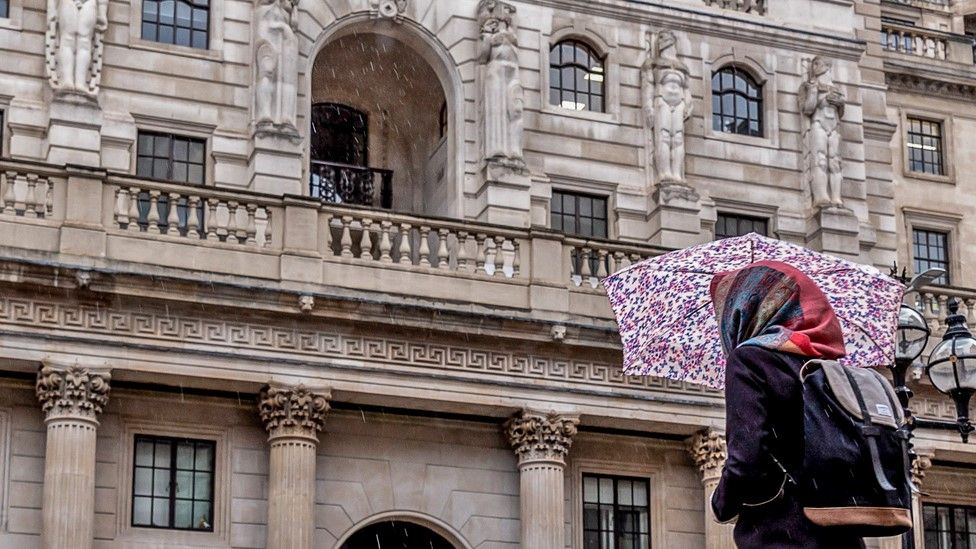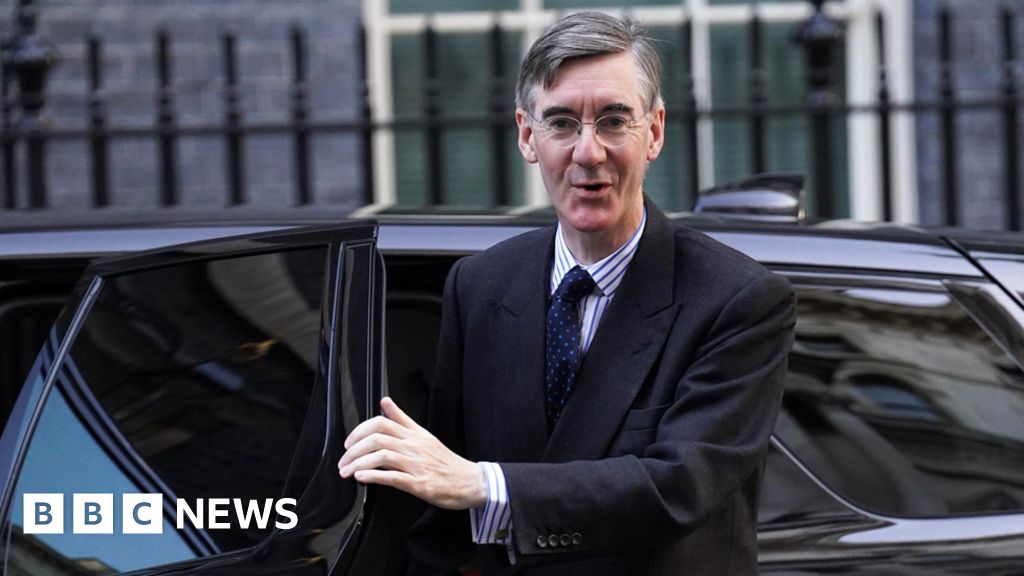This video can not be played
To play this video you need to enable JavaScript in your browser.
Jacob Rees-Mogg’s claims the economic turmoil is not linked to the mini-budget have been criticised.
The business secretary said recent market volatility could be due to the Bank of England’s failure to raise interest rates in line with the US.
“It’s much more to do with interest rates than it is do with a minor part of fiscal policy,” he told the BBC.
Economists and some MPs said huge tax cut plans without explaining the economic impact had worried investors.
After the mini-budget the pound plunged and government borrowing costs surged.
“What has caused the effect in pension funds… is not necessarily the mini-budget. It could just as easily be the fact that the day before the Bank of England did not raise interest rates as much as the (US) Federal Reserve did,” he said.
“Jumping to conclusions about causality is not meeting the BBC’s requirement for impartiality” he said after a suggestion the chancellor’s actions had been the trigger for the fluctuations in the value of the pound and government bonds,” Mr Rees-Mogg told the BBC’s Today Programme.
At the first PMQs since the mini-budget, Labour leader Sir Keir Starmer accused Prime Minister Liz Truss of “ducking the question” when asked whether she agreed with the business secretary.
Ms Truss said the government had taken “decisive action”, adding “as a result of our action… we will see higher growth and lower inflation.”
‘Straw that broke camel’s back’
Deutsche Bank’s chief UK economist Sanjay Raja told MPs the mini-budget on 23 September was the “straw that broke the camel’s back”.
Mr Raja argued there is “absolutely a global component” to the chaos but was adamant there is an “idiosyncratic UK-specific component” as well.
He said the “trade shock” because of Brexit is a factor, and added: “You throw on the September 23 event, you’ve got a sidelined financial watchdog, you’ve got lack of a medium-term fiscal plan, one of the largest unfunded tax cuts we’ve seen since the early 1970s, it was kind of the straw that broke the camel’s back.”
The Resolution Foundation’s Torsten Bell said it was clear the huge package of cuts, which was downgraded to £43bn after Mr Kwarteng’s U-turn on the top rate of income tax, should not have happened in the current financial climate.
He also said the sacking of the Treasury’s top civil servant Sir Tom Scholar had contributed.
“Yes, firing Treasury civil servants isn’t a good idea, that hasn’t helped, side-lining your fiscal watchdog hasn’t helped,” he told the MPs.
He added that after the chancellor announced a plan that “dumped fiscal orthodoxy”, then vowed to bring forward further tax cuts, it was “no surprise to any of us that this is where you end up”.
“This is what happens if you aren’t paying attention,” he said. “It was always going to be hard but it was exactly because it was always going to be hard that you don’t do this.”
-
-
45 minutes ago

-
-
-
14 hours ago

-
